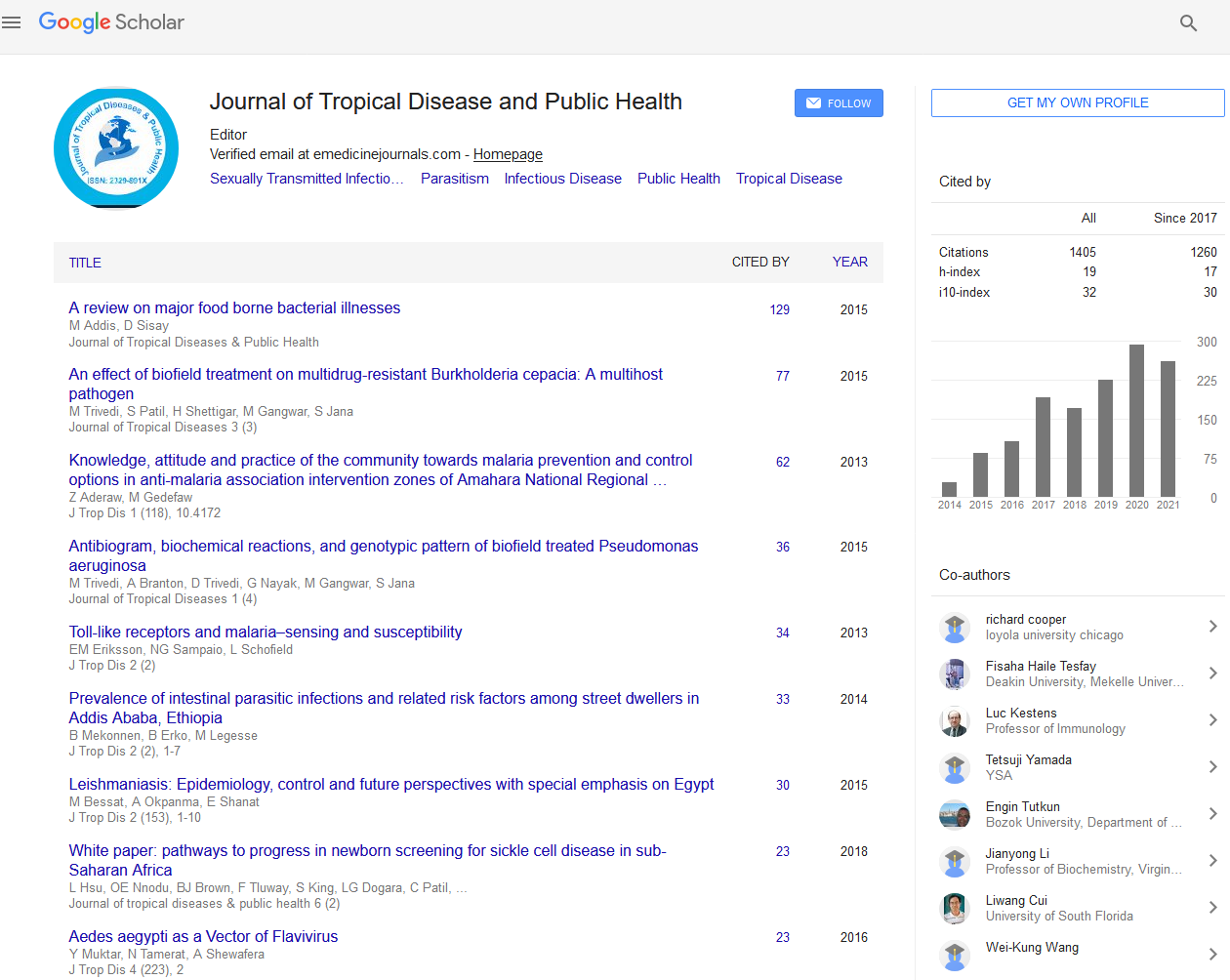Indexed In
- Open J Gate
- Academic Keys
- ResearchBible
- China National Knowledge Infrastructure (CNKI)
- Centre for Agriculture and Biosciences International (CABI)
- RefSeek
- Hamdard University
- EBSCO A-Z
- OCLC- WorldCat
- CABI full text
- Publons
- Geneva Foundation for Medical Education and Research
- Google Scholar
Useful Links
Share This Page
Journal Flyer

Open Access Journals
- Agri and Aquaculture
- Biochemistry
- Bioinformatics & Systems Biology
- Business & Management
- Chemistry
- Clinical Sciences
- Engineering
- Food & Nutrition
- General Science
- Genetics & Molecular Biology
- Immunology & Microbiology
- Medical Sciences
- Neuroscience & Psychology
- Nursing & Health Care
- Pharmaceutical Sciences
Abstract
The Significance of Electrocardiographic Abnormalities and Serology for T. cruzi Infection
Monique Lirio, Zuinara Pereira Gusmão Maia, Maria Nakatani, Sanjay R. Mehta and Roberto Badaro
Background: Electrocardiography (EKG) is a basic complementary exam in the evaluation patients with Chagas disease (CD), where findings can precede symptoms and physical examination abnormalities.
Objective: To correlate positive Chagas serology and electrocardiographic abnormalities associated with chronic chagasic cardiomyopathy.
Method: We evaluated the correlation between results of an ELISA using crude antigen (TcLys) and recombinant antigen (TcF) with the presence of EKG disturbances, within a cohort of individuals with either epidemiologic risk or clinical symptoms suggestive of CD, sent to our Laboratory for Tropical Diseases for testing in state of Bahia, Brazil.
Results: 84 individuals had a positive ELISA using TcLys or TcF antigen. Overall, 49 patients (58.3%) were symptomatic with CD, 42 (85.7%) with isolated evidence of the cardiac form, one (2.0%) with megacolon and mixed (megaviscera and cardiac) in six (12.2%). TcLys ELISA was positive in 45/49 (91.8%) and TcF in 42/49 (85.7%) of the symptomatic patients. The most common EKG abnormality, Complete Right Bundle Branch Block (CRBBB), was seen in 47/84 patients (56.0%) of the patients. Interestingly, in 11/47 (23.4%) of the patients with CRBBB, serologies were discordant. Conclusions: EKG plays a key role in the initial evaluation of patients with positive Chagas serology using crude or recombinant antigens. Individuals with positive serology should be carefully followed with periodical cardiac medical examination to early detect EKG abnormality compatible with CD.


